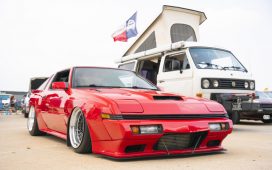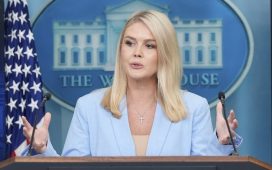(Bloomberg) — Ferrari NV is looking to its first fully electric supercar to revive sales in China because the model will benefit from lower tariff and tax rates.
The Elettrica EV that Ferrari will unveil starting in October is expected to be taxed at a compound rate of 30 per cent of the manufacturer’s suggested retail price. The carmaker’s models equipped with its roaring 12-cylinder engines face a combined import, consumption and value-added tax that’s almost four times that rate.
One of the cars Ferrari is launching this year will “fit better” for the Greater China region, Chief Executive Officer Benedetto Vigna said during an earnings call this week, without specifying the model. “That will improve the picture.”
Ferrari’s sales in China have stagnated due to muted demand for luxury vehicles. Local manufacturers led by BYD Co. also are pushing into top-end segments with models intended to compete with supercar brands. Ferrari’s shipments to the greater China region fell 25 per cent in the first quarter to the lowest in almost four years.
China’s luxury-car market shrank in 2024 due to the nation’s economic slowdown and weakened consumer sentiment. For the segment that starts from 500,000 yuan ($69,200), volumes were stable at around 850,000 units between 2020 and 2023. But last year, that number dropped roughly 20 per cent to around 677,000, according to data from Shanghai-based automotive consultancy Thinkercar.
Ferrari is less exposed to China than many of its Western peers because the company limits shipments to the region to around 10% of its total. The company could rethink that cap as it enters the EV segment, Vigna said earlier this year.
China has been limiting the influx of fuel-thirsty combustion-engine cars even before US President Donald Trump ratcheted up global trade tensions. Imported vehicles with engines larger than four liters are subject to a 15 per cent import tariff, a 40 per cent consumption tax and a VAT of at least 13 per cent in China. China exempts EVs from the consumption tax.
Ferrari’s biggest single market is the US, where the company plans to raise some car prices due to Trump’s tariffs.
–With assistance from Craig Trudell.
©2025 Bloomberg L.P.








